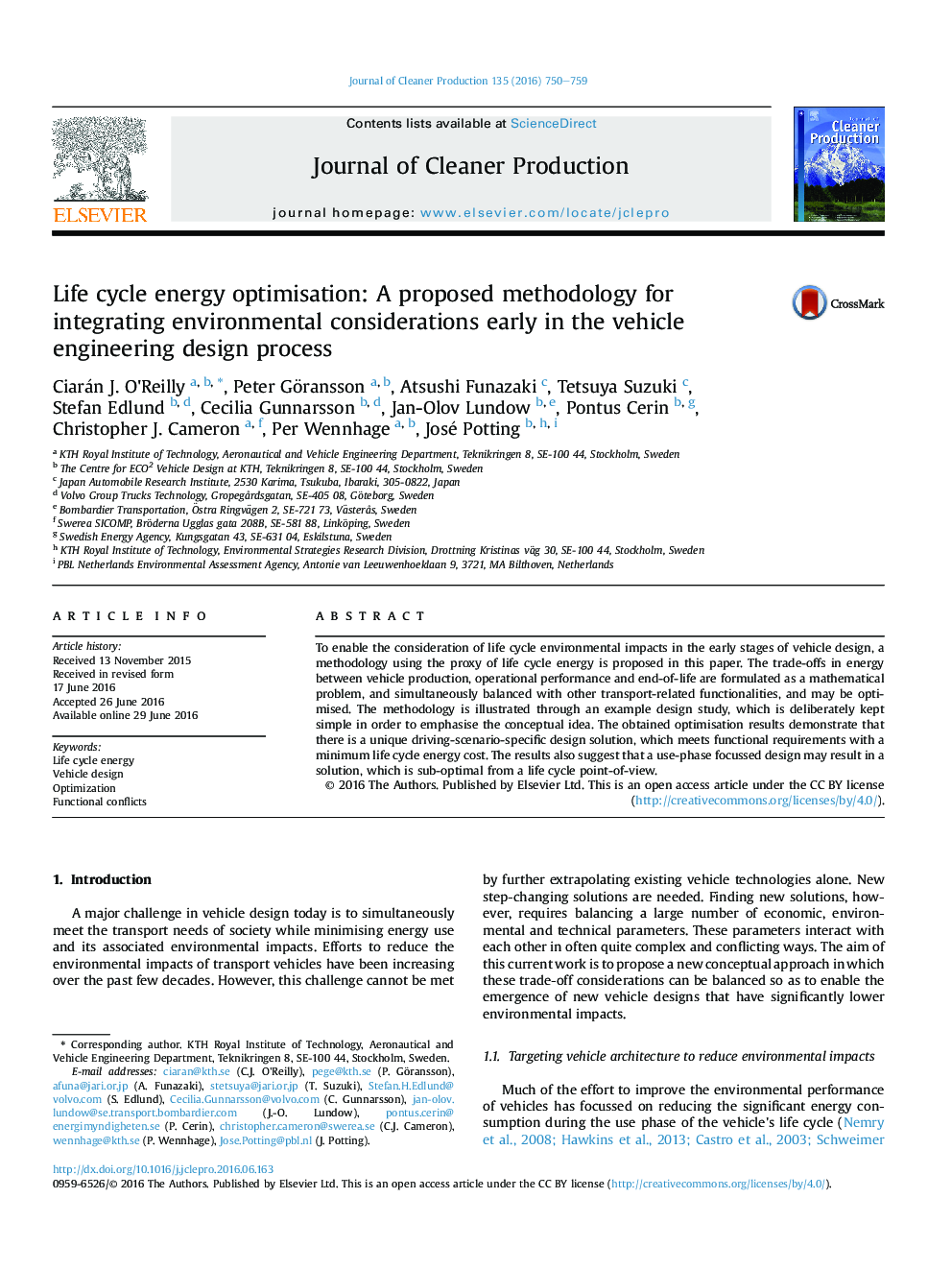| Article ID | Journal | Published Year | Pages | File Type |
|---|---|---|---|---|
| 8101265 | Journal of Cleaner Production | 2016 | 10 Pages |
Abstract
To enable the consideration of life cycle environmental impacts in the early stages of vehicle design, a methodology using the proxy of life cycle energy is proposed in this paper. The trade-offs in energy between vehicle production, operational performance and end-of-life are formulated as a mathematical problem, and simultaneously balanced with other transport-related functionalities, and may be optimised. The methodology is illustrated through an example design study, which is deliberately kept simple in order to emphasise the conceptual idea. The obtained optimisation results demonstrate that there is a unique driving-scenario-specific design solution, which meets functional requirements with a minimum life cycle energy cost. The results also suggest that a use-phase focussed design may result in a solution, which is sub-optimal from a life cycle point-of-view.
Related Topics
Physical Sciences and Engineering
Energy
Renewable Energy, Sustainability and the Environment
Authors
Ciarán J. O'Reilly, Peter Göransson, Atsushi Funazaki, Tetsuya Suzuki, Stefan Edlund, Cecilia Gunnarsson, Jan-Olov Lundow, Pontus Cerin, Christopher J. Cameron, Per Wennhage, José Potting,
